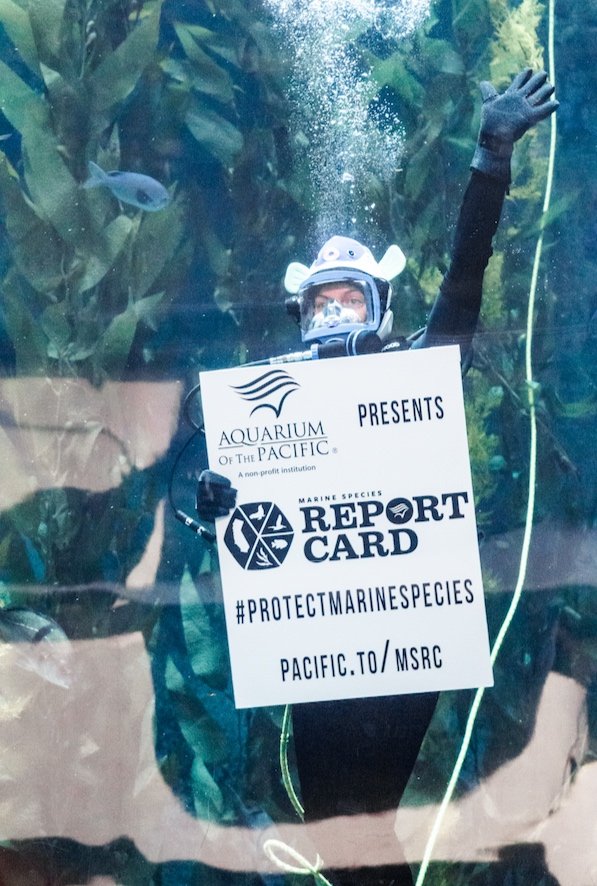Oceanic Report Cards
One thing I’ve learned since moving to Southern California is that the water women here take the water VERY seriously! It’s no Surprise that when my friend, fellow mermaid, non-profit founder, and Ocean conservationist, Jessy Shelton, asked me to help cover a story with her for a publication in Crescenta Valley (you can read the story here: Crescenta Valley Weekly) I totally geeked. Spending a day working amongst the fish without having to get into the chilly California water and learning more about the coastal conservation initiatives in the greater LA area with a fellow water woman? SIGN. ME. UP.
Jessy and I made the short trek down to Long Beach to the Aquarium of the Pacific where we spoke with Biologists and conservation coordinators about the Marine Species Report Card program they started. What is a MSRC? Let me tell ya!
The Marine Species Report Card is a guide to understanding the overall health of our coastal neighbors! It uses scientific data gathered by scientists and citizen scientists alike to compile information on how the populations are doing. Are they rising, declining, steady? The MSRP can tell you! From birds to mammals to fish the MSRP is more than just a handy guide to what’s happening in the ocean community, it’s a tool for us land dwellers to have a better understanding of all of the factors that contribute to the overall health of marine species along the California coastline.
Sea Lions taking a snooze along the break wall inside the Port of Long Beach- their camouflage is excellent
Something that’s been on my mind lately is “how can we better connect not only with each other, but with the ecosystems in our own backyard?”. This report card is a great tool to understanding more about these creatures and their ecosystems. If conservation is something you find yourself interested in, the MSRC is a great tool for you, a great tool for anybody really!
While we were at the event we had the opportunity to interact with some of the creatures that can be found on the report card like the Abalone. Abalone populations used to be booming off the coast of Southern California, but now overfishing has caused steep population decline resulting in larger conservation efforts to rehabilitate the population. To better understand the overall health of an ecosystem it’s important to first understand the health of individual species within it. Everything is connected, so the health of one animal in the food chain will directly affect the health of another which will impact the overall health of the ecosystems, which affect us!
Abalone from above!
To finish the day at the aquarium, we took a little cruise through the harbor in Long Beach to see some of these animals on the MSRC in the wild. There was one photo in particular that puts the health of populations in perspective. Shipping freights coming into the port often cross paths with so much wildlife. To me, Conservation is more than just advocating for the creatures that aren’t able to advocate for themselves, it’s about making lifestyle choices that reflect what we value. To me, the wildlife and health of our planet will always be worth making those sacrifices, which actually better my community by choosing more sustainable and local options for items I might need, which in turn can save marine life!
how many of the imported goods we purchase come into the port of LA, crossing paths with the wildlife
For More information about the Marine Species Report Card you can visit this site :)




